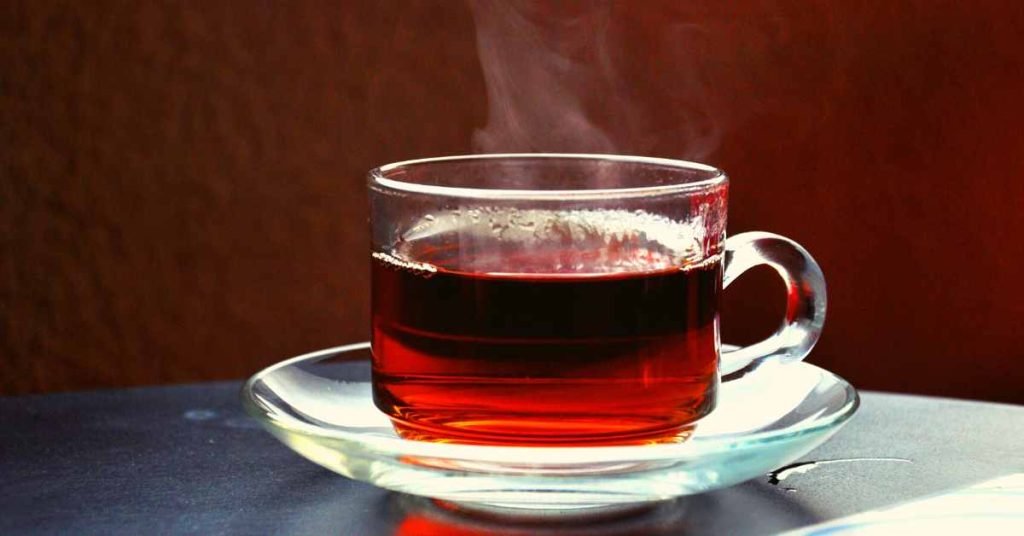Welcoming a new life into the world is a profound and transformative experience, but it can also bring about challenges, including postpartum depression (PPD).
PPD is a mood disorder that affects many new mothers, characterized by persistent feelings of sadness, anxiety, and fatigue after childbirth.
While professional treatment is essential in managing PPD, complementary and holistic approaches can provide significant support.
In this article, we will explore how tea, with its calming and healing properties, can be a soothing and nurturing companion for women dealing with postpartum depression.
Understanding Postpartum Depression

Postpartum depression is a specific form of clinical depression that occurs after childbirth.
It is different from the “baby blues,” which are common and usually short-lived mood swings that many women experience shortly after giving birth.
PPD is a more severe and long-lasting condition that can affect a woman’s ability to care for herself and her baby.
PPD often manifests with a range of symptoms, including persistent feelings of sadness, guilt, and worthlessness, a loss of interest in activities, fatigue, sleep disturbances, and changes in appetite.
It can be emotionally and physically draining for new mothers, impacting their overall well-being and their ability to bond with and care for their newborns.
While professional medical care is crucial for managing PPD, tea can serve as a holistic tool to complement conventional treatments, providing a sense of calm, comfort, and self-care during a challenging time.
Stress Reduction and Relaxation

One of the most immediate benefits of tea in managing postpartum depression is its ability to reduce stress and induce relaxation.
The act of preparing and sipping a warm cup of tea can be a meditative experience that promotes mindfulness and self-soothing.
By establishing a tea-drinking routine, new mothers can create a sense of predictability and comfort in their daily lives.
Herbal teas, such as chamomile, lavender, and lemon balm, are particularly effective in promoting relaxation.
Chamomile, for instance, contains apigenin, a compound that binds to receptors in the brain, reducing anxiety and facilitating relaxation. Lavender tea offers natural sedative properties that can help alleviate stress and promote a sense of calm.
Lemon balm tea has similar effects, making it easier for new mothers to unwind and manage the tension associated with postpartum depression.
Hormone Regulation

Hormonal fluctuations after childbirth can contribute to the development of PPD.
Tea, particularly certain herbal varieties, can support hormone regulation. Red raspberry leaf tea, for example, has been traditionally used to strengthen the uterine muscles and tone the pelvic area.
It may assist in regulating hormones, easing the transition post-pregnancy, and supporting the body’s healing process.
Additionally, some studies suggest that the phytoestrogens found in certain herbal teas, like red clover, may help balance hormone levels.
Hormone regulation is essential in managing postpartum depression, and the gentle, natural approach of herbal teas can contribute to a more stable hormonal environment.
Sleep Improvement
Sleep disturbances are common during the postpartum period and can exacerbate the symptoms of postpartum depression.
Herbal teas, such as chamomile, valerian root, and passionflower, have natural sedative properties that can promote restful sleep.

Chamomile tea, with its relaxing effects, can help new mothers fall asleep more easily and experience better sleep quality.
Valerian root and passionflower teas also have sedative properties that may support improved sleep. Proper sleep is crucial for managing PPD, as it helps to restore emotional balance and reduce fatigue.
Cognitive Function and Memory Enhancement
Postpartum depression can affect cognitive function and memory. Some teas, such as green tea and ginkgo biloba, contain compounds that have been associated with improved cognitive performance.
Green tea, rich in antioxidants, including catechins, may enhance memory and cognitive function.
Ginkgo biloba tea may improve blood circulation to the brain, potentially increasing concentration and cognitive abilities.
For women dealing with postpartum depression and cognitive challenges, incorporating these teas into their routine can provide cognitive benefits.
Stress Management
In addition to relaxation, tea consumption can serve as a valuable tool for stress management. New mothers dealing with postpartum depression can turn to tea as a means of self-soothing and emotional support.

The act of brewing and sipping tea offers a moment of solace and reflection, which can help women manage stress. By creating a peaceful and comforting environment, tea can be a powerful ally in stress reduction and self-care.
Digestive Health and Comfort
Postpartum depression can manifest physically, leading to gastrointestinal symptoms such as stomachaches and indigestion.
Herbal teas, like ginger, peppermint, and fennel, can help soothe digestive discomfort and reduce the physical symptoms of PPD.
Ginger tea contains compounds that relax the gastrointestinal muscles and alleviate nausea.
Peppermint tea has a calming effect on the stomach and can reduce abdominal discomfort. Fennel tea is known for its digestive properties and may help alleviate gas and bloating.
By addressing the physical symptoms of postpartum depression, these teas can contribute to overall well-being.
Emotional Release and Catharsis

The act of tea consumption can be a therapeutic practice for new mothers.
It provides a moment for emotional release and catharsis. As women sip tea, they may find it easier to express their feelings, helping them process the emotional challenges of postpartum depression.
Tea rituals can be accompanied by journaling or other creative practices that encourage self-expression and emotional healing.
By incorporating these practices into their routine, women can create a safe space to address their feelings and seek emotional support.
Final Word
Postpartum depression is a significant challenge for new mothers, affecting both their emotional and physical well-being.
While professional medical care is essential in managing PPD, tea can serve as a supportive and nurturing companion.
By promoting relaxation, reducing stress, enhancing sleep quality, and providing a sense of calm and self-care, tea can offer solace to women dealing with postpartum depression.
It’s important to remember that tea is not a substitute for professional treatment and counseling.
Women with PPD should receive appropriate medical and psychological care, and the use of tea should be integrated into a broader wellness plan under the guidance of healthcare providers.
Tea can be a gentle and soothing tool for promoting emotional well-being and providing comfort during the challenging journey of postpartum depression.
MEDICAL DISCLAIMER
Itsnevernotteatime.com cannot and does not contain medical/health advice. The medical/health information is provided for general and educational purposes only and is not a substitute for professional advice.




